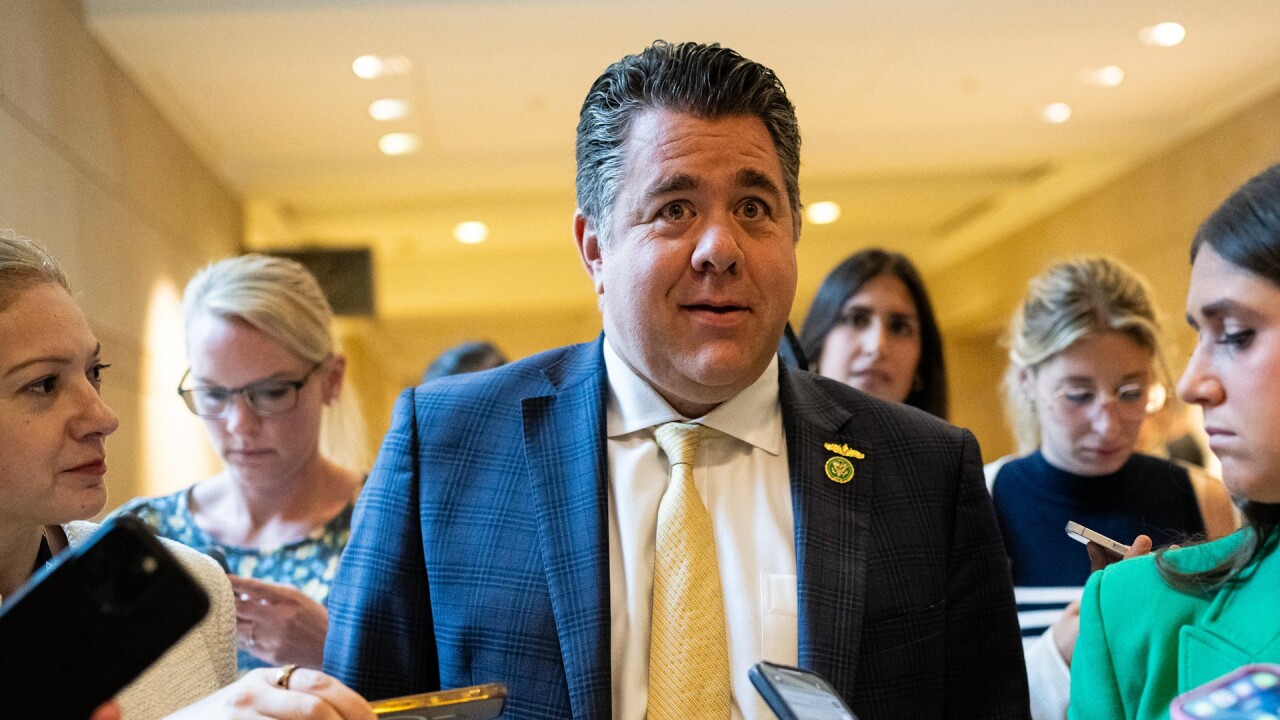
CHICAGO — The Illinois House Speaker introduced legislation to cut the state's business tax in half as state lawmakers shift their focus from pension reform to taxes.
After passing a sweeping pension overhaul in 2013, taxes are the big issue for lawmakers with the looming partial expiration of a temporary personal income tax increase in the face of structural budget deficits.
House Bill 4479, introduced Thursday by the powerful speaker, Michael Madigan, D-Chicago, would reduce the corporate state income tax on business profits to 3.5% from a current rate of 7% although the rate is already set to roll back to 5.25 % next year.
The change would have a retroactive effective date of Jan. 1. It would cut collections by $500 million to $700 million for the remainder of this year and in fiscal 2015 could cost the state $1.5 billion.
The move would drop the state from 5th to 35th on the national income tax ranking of the states, Madigan's office said, citing a Federation of Tax Administrators report. The Personal Property Replacement Tax paid by business would remain unchanged.
"For many years, we have listened to employers about the best manner to improve the business climate. We have tackled worker compensation reform, reduced the estate tax and created an independent tax tribunal," Madigan said. "Cutting the corporate income tax rate is another step I am asking the legislature to consider."
The proposal surprised many with Gov. Pat Quinn and some Democrats refusing to take a position and others either praising it or questioning how the state could afford it as a $4 billion deficit looms in fiscal 2016 due to the impending income tax rollback. Republicans welcomed the idea of a tax cut, which their caucus has pushed for years, but some appeared skeptical that it was perhaps a ploy that would lead to a graduated tax.
"On the surface we are thrilled that the majority party seems to finally be getting the message that something needs to be done, but remain cautious about how they intend to make up the lost revenue," said House Republican Leader Jim Durkin.
Madigan said the legislation should be considered by the Revenue & Finance/State Government Administration Committees' joint hearings on tax policies and members should examine its potential impact on business location and expansion plans.
The state's use of tax credits to keep and lure businesses has come under fire and neighboring states have sought to capitalize on the 2011 temporary corporate and personal tax increases by touting their lower rates.
The 2011 income tax hikes are set to partially expire on Jan. 1, 2015, midway through the next fiscal year. Quinn is expected to address how he wants the state to deal with the revenue loss in his fiscal 2015 budget that will be unveiled next month.
If nothing is done, the personal income tax will revert to 3.75 % from 5% and the corporate rate to 5.25% from 7%.
That tax was at 4.8% before the hikes took effect in 2011. If the rollback occurs as scheduled, individual income tax collections will fall by $1.7 billion in the next fiscal year and corporate taxes by $325 million, according to the state's three-year budget forecast.
A looming $4 billion deficit in 2016 could deepen if the state's pension reforms don't withstand a pending legal challenge because the budget forecast anticipates $1.2 billion in pension savings that year.
Majority Democrats have been mum on how they plan to deal with the tax rollback.
Illinois is the weakest rated state at the low-single A level by Fitch Ratings and Moody's Investors Service and Standard & Poor's.
Fitch affirmed its A-minus rating and negative outlook Friday; Moody's affirmed its A3 rating and negative outlook Tuesday.
Standard & Poor's changed the outlook on its A-minus rating to developing after the pension legislation was adopted.
"Illinois' negative outlook reflects our expectation that the state's financial position may deteriorate further because of factors including the loss of revenue from income tax increases set to expire next year," Moody's wrote, adding that the pension reforms could if upheld improve the state's credit standing.





